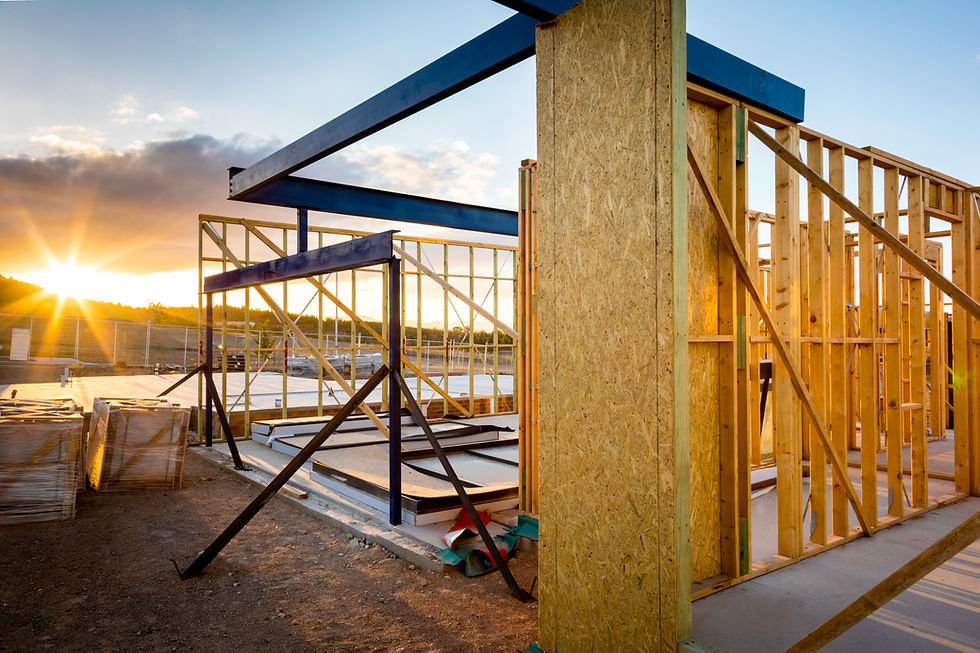Building a Strong Foundation: The Importance of Residential Concrete Slabs
- Zizz Homes
- Aug 17, 2023
- 3 min read
Updated: Mar 6, 2024
Introduction:
In the realm of residential construction, few elements are as critical as the foundation. For builders in New South Wales (NSW), Australia, the choice of material and method for creating residential home concrete slabs is paramount. These slabs serve as the literal foundation upon which the entire structure rests, making their construction a matter of both practical necessity and strategic importance.
In this blog post, we'll delve into the significance of residential home concrete slabs in NSW, Australia, exploring their role in ensuring structural integrity, longevity, and overall quality for residential properties. Whether you're a seasoned builder or a homeowner seeking insight into the construction process, understanding the importance of concrete slabs is essential.
The Role of Concrete Slabs in Residential Construction:
When it comes to residential construction in NSW, Australia, concrete slabs are the go-to choice for creating stable foundations. Unlike traditional methods such as timber stumps or pier and beam systems, concrete slabs offer several advantages:
1. Stability and Durability: Concrete is renowned for its strength and durability, providing a solid base that can withstand the test of time and environmental factors such as moisture and ground movement. This stability is crucial for ensuring the structural integrity of the entire building.
2. Moisture Resistance: In regions like NSW, where rainfall and humidity levels can vary significantly throughout the year, moisture resistance is a key consideration in foundation design. Concrete slabs, when properly constructed and sealed, create a barrier against moisture infiltration, helping to prevent issues such as mold, mildew, and rot.
3. Thermal Efficiency: Concrete slabs can also contribute to the thermal efficiency of a home, particularly when combined with insulation materials. By retaining heat during the colder months and providing a cool foundation in the summer, concrete slabs help regulate indoor temperatures, reducing reliance on heating and cooling systems and ultimately lowering energy costs.
4. Pest Prevention: Unlike timber foundations, which may be susceptible to termite infestations and other pest-related damage, concrete slabs offer a natural deterrent against unwanted intruders. This can save homeowners from costly repairs and treatments down the line.
Construction Process and Considerations:
The construction of residential home concrete slabs in Australia, involves a series of steps and considerations to ensure optimal performance and compliance with local building codes and regulations. Key aspects of the process include:
1. Site Preparation: Before pouring the concrete, the site must be properly prepared, including excavation, leveling, and installation of any necessary sub-base materials such as gravel or sand. This stage is crucial for achieving a uniform foundation and addressing any soil-related issues that may affect stability.
2. Reinforcement and Formwork: Depending on the size and design of the structure, reinforcement materials such as steel mesh or rebar may be incorporated into the concrete slab to enhance strength and minimize cracking. Additionally, formwork is used to contain the concrete during pouring and curing, shaping it according to the desired dimensions and contours.
3. Concrete Mixing and Pouring: High-quality concrete mixtures are essential for achieving a durable and long-lasting slab. Builders must carefully calculate the proportions of cement, aggregate, and water to achieve the desired strength and consistency. The concrete is then poured into the prepared formwork and allowed to cure properly, typically over a period of several days.
4. Finishing and Sealing: Once the concrete has cured, finishing touches such as smoothing, leveling, and texturing may be applied to the surface to enhance aesthetics and functionality. Additionally, sealing the concrete with a protective coating helps to preserve its integrity and resist moisture penetration.
Conclusion:
In the realm of residential construction in Australia, the importance of concrete slabs cannot be overstated. Serving as the foundation upon which homes are built, these structures provide stability, durability, and protection against a range of environmental factors. By understanding the significance of concrete slabs and following best practices in their construction, builders can ensure the long-term integrity and quality of residential properties for years to come.



Comments